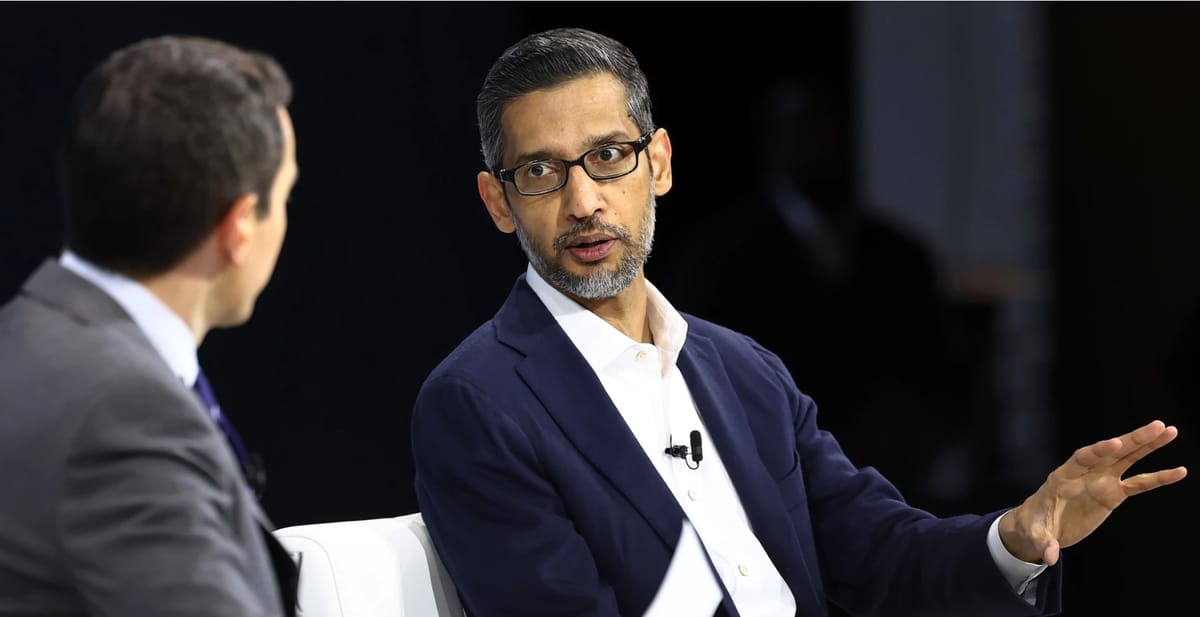
Google’s C.E.O., Sundar Pichai, speaking at the 2024 New York Times DealBook Summit, insisted that Google remains at the forefront of artificial intelligence innovation. Despite critics suggesting the tech giant’s rivals are closing in, he outlined a vision of search transformed through more advanced AI, while downplaying imminent antitrust threats and the notion that its dominance would fade.
Key Points:
- Pichai rejected suggestions that Google has lost its AI lead, challenging Microsoft’s models in a “side-by-side comparison.”
- He expects Google Search to “change profoundly” in 2025, tackling more complex queries and integrating advanced AI.
- Amid intensifying regulatory pressure, Pichai maintained that Google’s best defence is continuous innovation.
- He acknowledged the complexity of fair use and content licensing in AI training, hinting that new economic models for creators may emerge.
Why it matters: Google’s position as the reigning force in search—and a central player in AI—is being tested by competitors and regulators. Pichai’s remarks highlight an industry at a crossroads, as generative AI disrupts traditional business models and fuels both optimism and anxiety.
Driving the news: In a live interview with Andrew Ross Sorkin, Pichai shrugged off Microsoft CEO Satya Nadella’s claim that Google should have easily won the generative AI race. Pichai said he would "love to do a side-by-side comparison of Microsoft's own models and our models any day, any time," pointedly adding that Microsoft is "using someone else's models" – a reference to their partnership with OpenAI.
Despite predicting tougher innovation curves ahead, Pichai revealed that AI is already deeply embedded in Google's operations, with 25% of software written internally now involving AI assistance. He emphasized this represents human engineers accepting AI suggestions rather than autonomous code generation.
He also spoke about a more sophisticated search experience by early 2025, going beyond current capabilities to handle complex, multi-step questions with AI-driven reasoning.
Between the lines: Google faces an antitrust trial that could force significant changes to how it operates, including potential divestitures. Pichai, however, emphasised that the firm’s ongoing innovation underpins its legal stance.
The C.E.O. argued that as AI tools proliferate, reliable platforms like Google Search may become even more essential to sift through synthetic and AI-generated content.
Innovation and competition: Pichai stressed that the era of “low-hanging fruit” in AI development is passing, implying that the next major breakthroughs will require deeper technical advances.
He expects several companies, from OpenAI to Meta, Amazon, and perhaps Apple, to remain serious contenders in shaping the field.
Content and creators: Pichai acknowledged the need for fair models that compensate creators whose work is used to train AI systems. He pointed to Google’s existing licensing deals and suggested that a more formal marketplace for AI training data could emerge.
The bottom line: Pichai’s vision rests on the idea that Google’s broad AI investments—spanning software, infrastructure, and research—will keep it at the forefront. While he downplayed fears of losing ground, he made it clear that success will depend on leaning harder into responsible, transformative AI innovation, even amid regulatory headwinds and competitive pressures.

